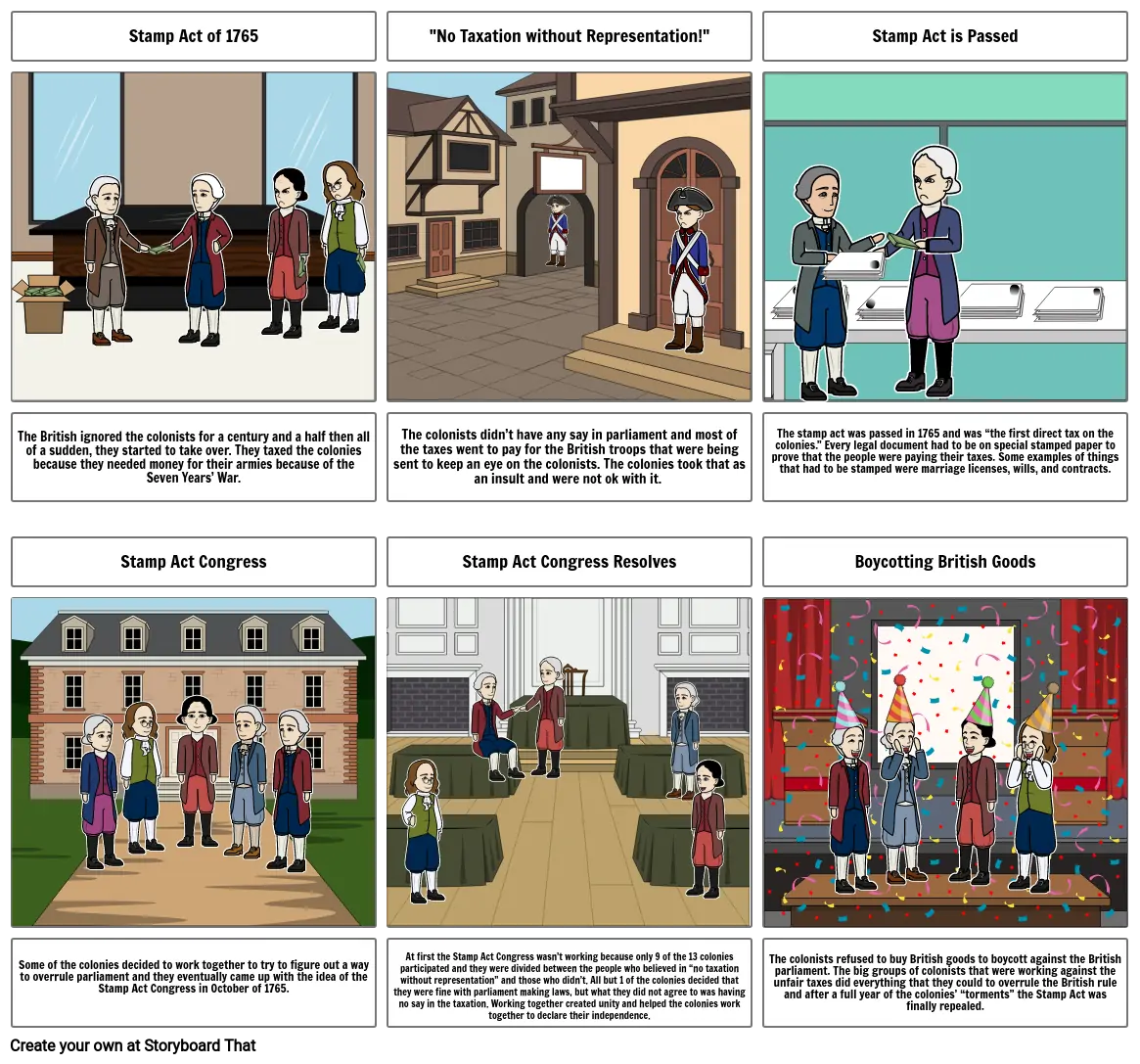stamp act

Kuvakäsikirjoitus Teksti
- Stamp Act of 1765
- "No Taxation without Representation!"
- Stamp Act is Passed
- The British ignored the colonists for a century and a half then all of a sudden, they started to take over. They taxed the colonies because they needed money for their armies because of the Seven Years’ War.
- Stamp Act Congress
- The colonists didn’t have any say in parliament and most of the taxes went to pay for the British troops that were being sent to keep an eye on the colonists. The colonies took that as an insult and were not ok with it.
- Stamp Act Congress Resolves
- The stamp act was passed in 1765 and was “the first direct tax on the colonies.” Every legal document had to be on special stamped paper to prove that the people were paying their taxes. Some examples of things that had to be stamped were marriage licenses, wills, and contracts.
- Boycotting British Goods
- Some of the colonies decided to work together to try to figure out a way to overrule parliament and they eventually came up with the idea of the Stamp Act Congress in October of 1765.
- At first the Stamp Act Congress wasn’t working because only 9 of the 13 colonies participated and they were divided between the people who believed in “no taxation without representation” and those who didn’t. All but 1 of the colonies decided that they were fine with parliament making laws, but what they did not agree to was having no say in the taxation. Working together created unity and helped the colonies work together to declare their independence.
- The colonists refused to buy British goods to boycott against the British parliament. The big groups of colonists that were working against the unfair taxes did everything that they could to overrule the British rule and after a full year of the colonies’ “torments” the Stamp Act was finally repealed.
Yli 30 miljoonaa kuvakäsikirjoitusta luotu

